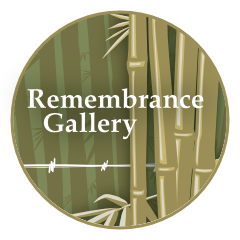Profound Acts of Kindness
Following the signing of Executive Order 9066, while many people took advantage of the soon-to-be incarcerated Japanese and Japanese Americans; however, there were many people in the community who lent a hand. They stored personal items and business inventory, watched over properties, made arrangements to pay taxes, and found renters to take over the farms and dairies. While these were very honorable acts, please recognize the courage these non-Japanese friends demonstrated. They were ridiculed, bullied, and called derogatory names. They were accused of siding with the enemy because their neighbors had the faces of the enemy.
Many community members, young and old, visited the fairgrounds out of curiosity. They were in awe of the soldiers, the barbed wire fence, and the barracks on the fairgrounds. They looked at those confined like they were animals in a zoo.
People below are examples of friends and neighbors who were recognized at the September 2 event.
Ben Andre and his sons, Roy and Willard
The Andres ran Andres Market in Fife, Washington. During the war, they paid property taxes and stored the personal belongings of their Japanese customers and friends through the sale of produce and/or equipment. When the war was over, Andres Market provided farm tools, seeds, and fertilizer so that Japanese farms could be revitalized again. The Andres did not ask for any payment upfront but allowed bills to be paid after the harvest.
Ed and Grace Orton and son, Stanley
The Ortons were Sumner daffodil farmers and founders of the Daffodil Festival. They helped the Hayashibaras and other Japanese American friends and employees in many ways during the war. This included farming their lands and making mortgage payments for these families to avoid bank foreclosure – selling off some of their own land to make this possible. When the Hayashibara family and others returned home after the war, they found sugar, rice, and flour in their cupboards and receipts on the table for all of their bills paid. Also, their son, Stanley, helped arrange work releases in Colorado so that these families could avoid the incarceration camps. The Ortons refused to accept any recognition for their generous support.
